






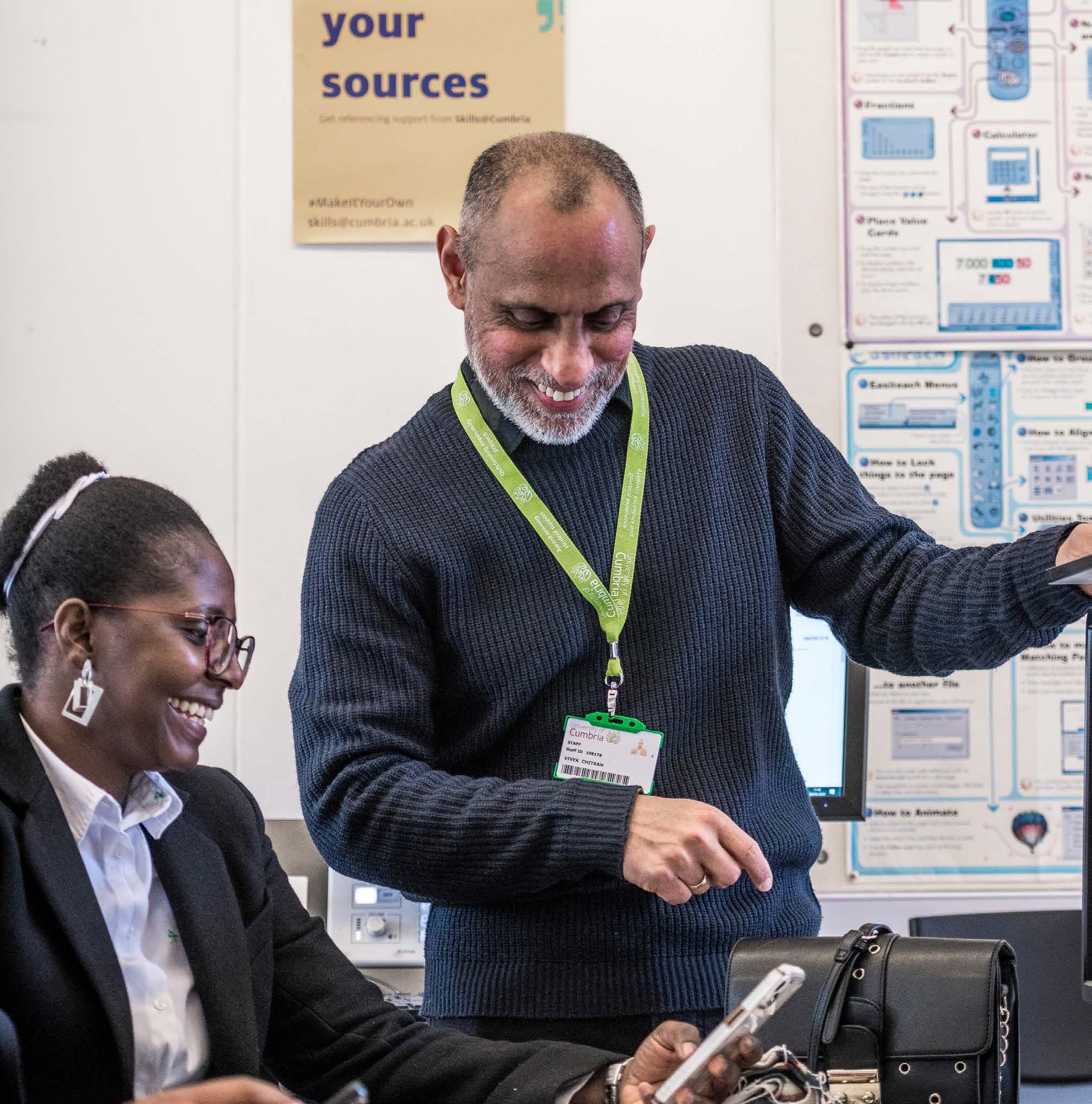


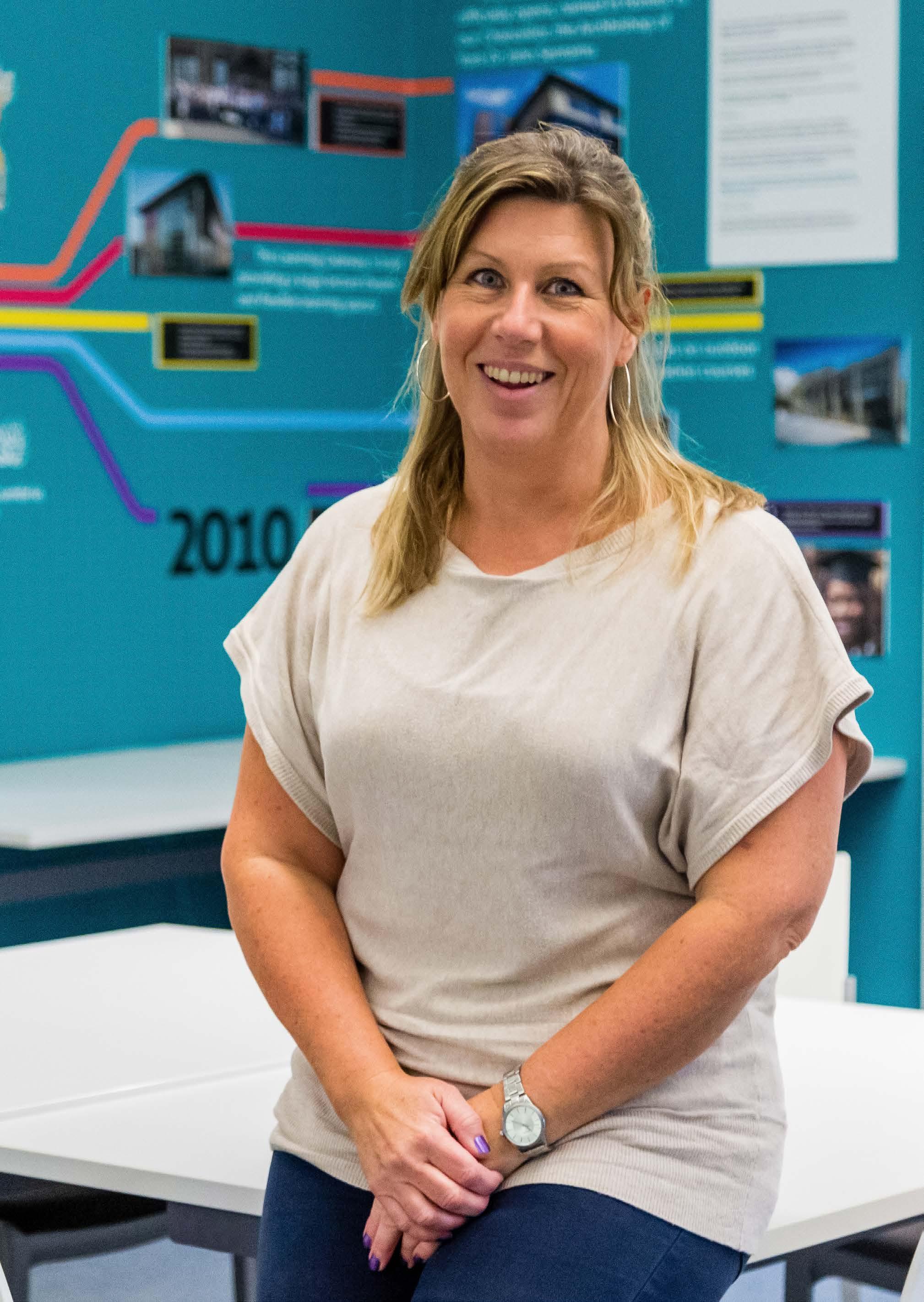
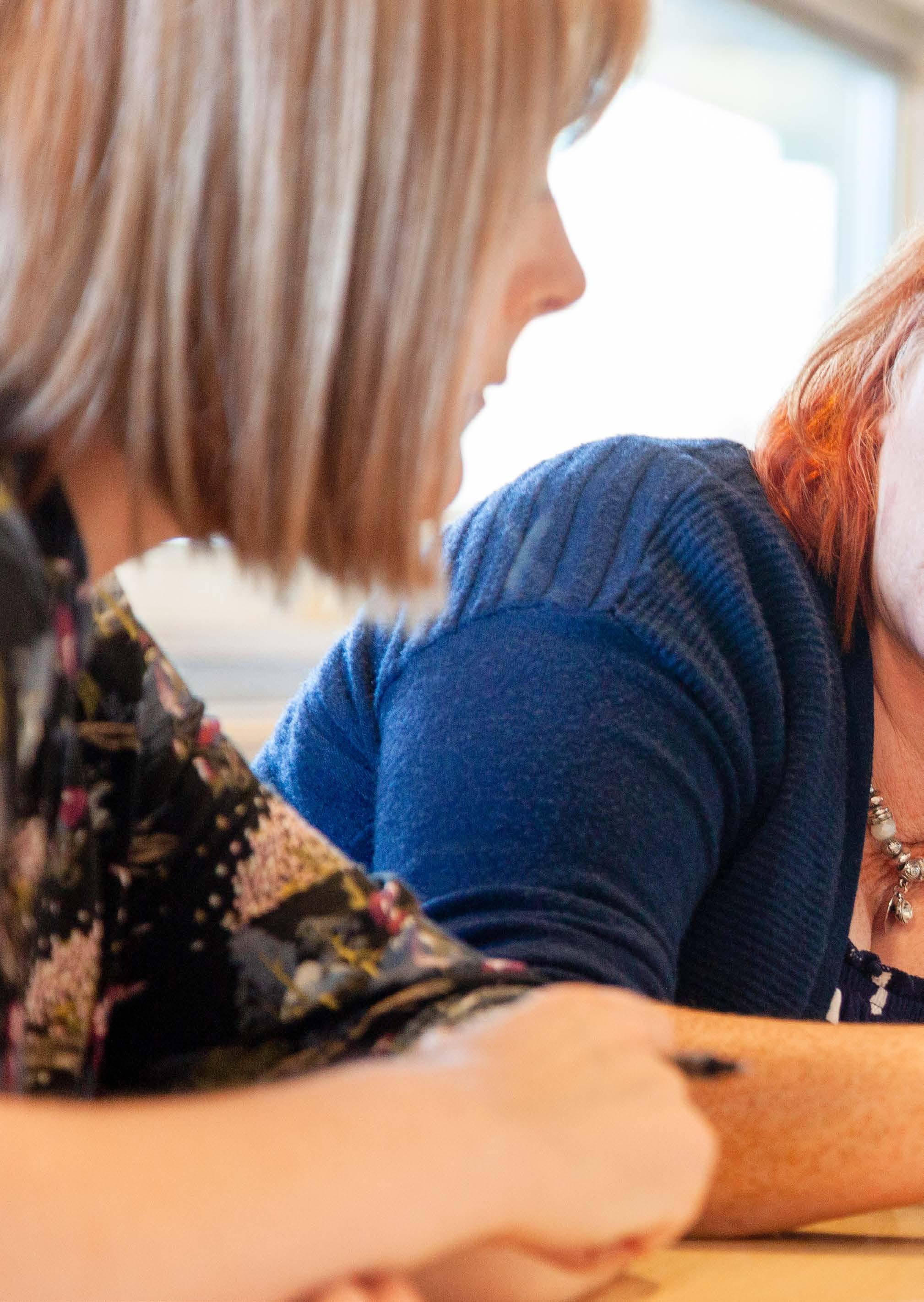
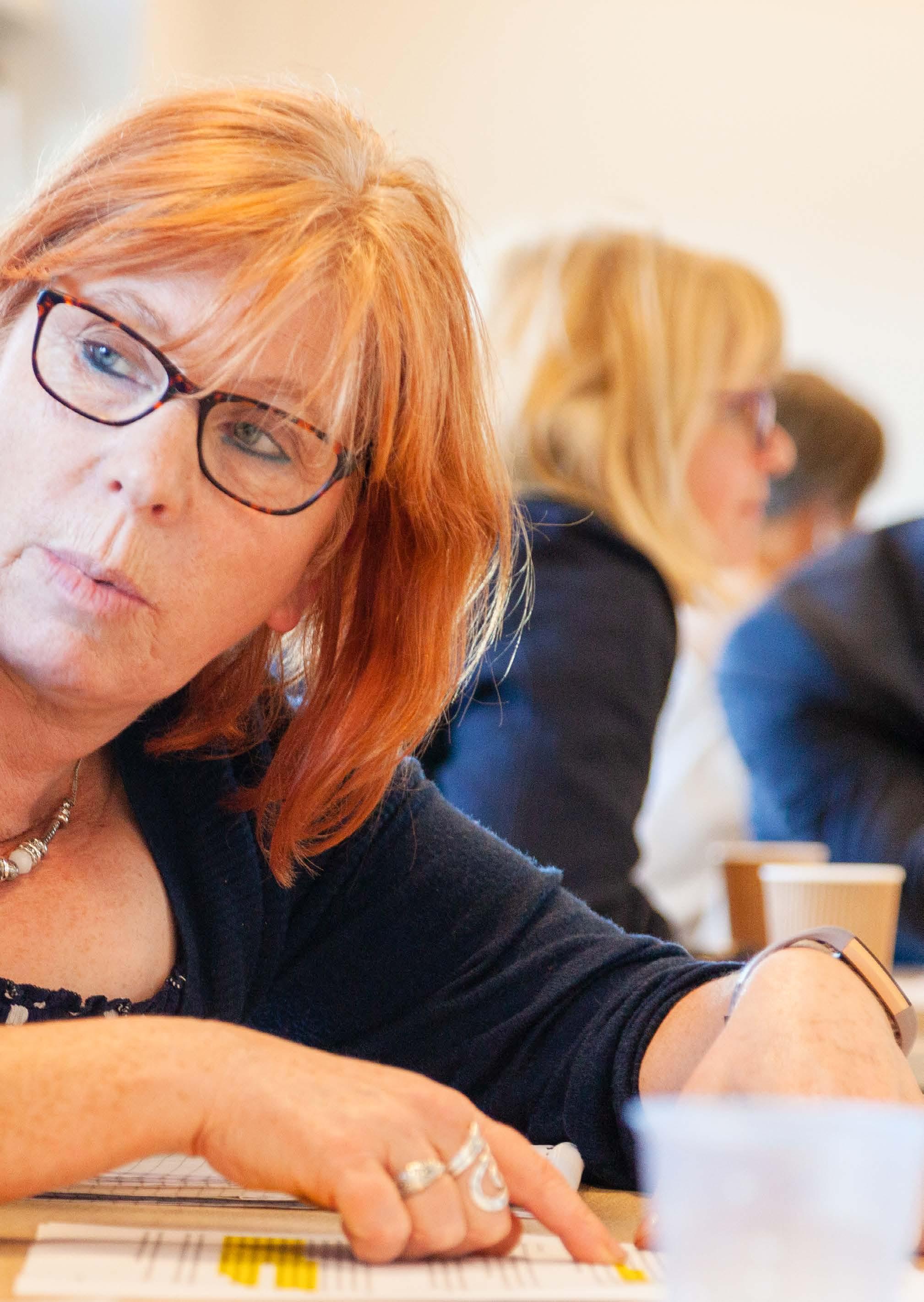
We are the University of Cumbria, for and from Cumbria and our localities, rooted in and serving our communities, with people, place and partnership at our heart.
Zoe Pluckrose-Norman Director of People & Culture
Our People & Culture Strategy is critical to achieving the university’s exciting ambitions in the Towards 2030 Strategy (more locally known as our T2030 strategy).
The University of Cumbria exists to transform lives and livelihoods, through learning, applied research, and practice for now, and for our future generations.
We are committed to working together to deliver our T2030 strategy, leveraging technology and developing workforce plans to ensure we are future fit. We invite our colleagues to contribute to our welcoming, progressive, and flourishing environment and culture.
The University of Cumbria builds on a solid foundation and commits to our colleagues, that we care for our people. We care about our colleagues, our students, our graduates, and the communities we operate in and with.
As a Cathedrals Group University, we have a commitment to wisdom and wellbeing, to the drawing on well-understood traditions of truth, hope, and faith in all the possibilities of being human, so that everyone can flourish in a generous spirited, and hospitable community. We want to encourage our students to contribute to the common good and our colleagues to be empowered to find their strengths and develop their unique contributions to our university. This happens in an environment where there is encouragement, an expectation of commitment, and space for personal growth.
Our colleagues are front and centre of our T2030 strategy, recognising that all our efforts, talents, and commitment will make our ambitions a reality. We will create and nurture a truly inclusive, progressive, and rewarding environment for our people.
The approach we take in implementing the People & Culture Strategy is critical. We will engage and include colleagues and stakeholders in developing the roadmap and shaping the current and future university community. This will require a willingness to change from all of us and an ongoing collective commitment to trust and openness.
We appreciate that to thrive in the future, we will need to flex and adapt to changing demands and student expectations. We are fortunate to have a strong base to work from. We may be only “sweet sixteen” but we have over 100 years of successfully changing and adapting within education, from our roots in Charlotte Mason College, St Martin’s College (Lancaster & London), and Cumbria Institute of the Arts.
We have come a great distance in recent years. Our success in the future will be achieved by our key assets – our people.
We appreciate that change can be tough. In all our activities, we will demonstrate the university’s values of Personal, Progressive, and Engaged. We invite colleagues to demonstrate these same values, to help us all create an inclusive and kind environment, with happiness, wellbeing, trust, and our personal contribution at its heart.
The HE sector as a whole is facing some challenging times due to the freeze on tuition fees, inflation, and rising staffing and pension costs. This strategy with its focus on change and innovation will support the university to thrive into 2030 and beyond.
Throughout the life of this strategy and beyond, we are committed to genuinely listening to our colleagues’ views and responding to them, with a focus on “you said, we did” initiatives.
Zoe Pluckrose-Norman Director of People & CultureBased on the feedback obtained at our colleague engagement sessions in 2023 (known as our world café sessions), we have committed to delivering five people pledges and to report back through our employee survey on progress.
Our commitments to our people:
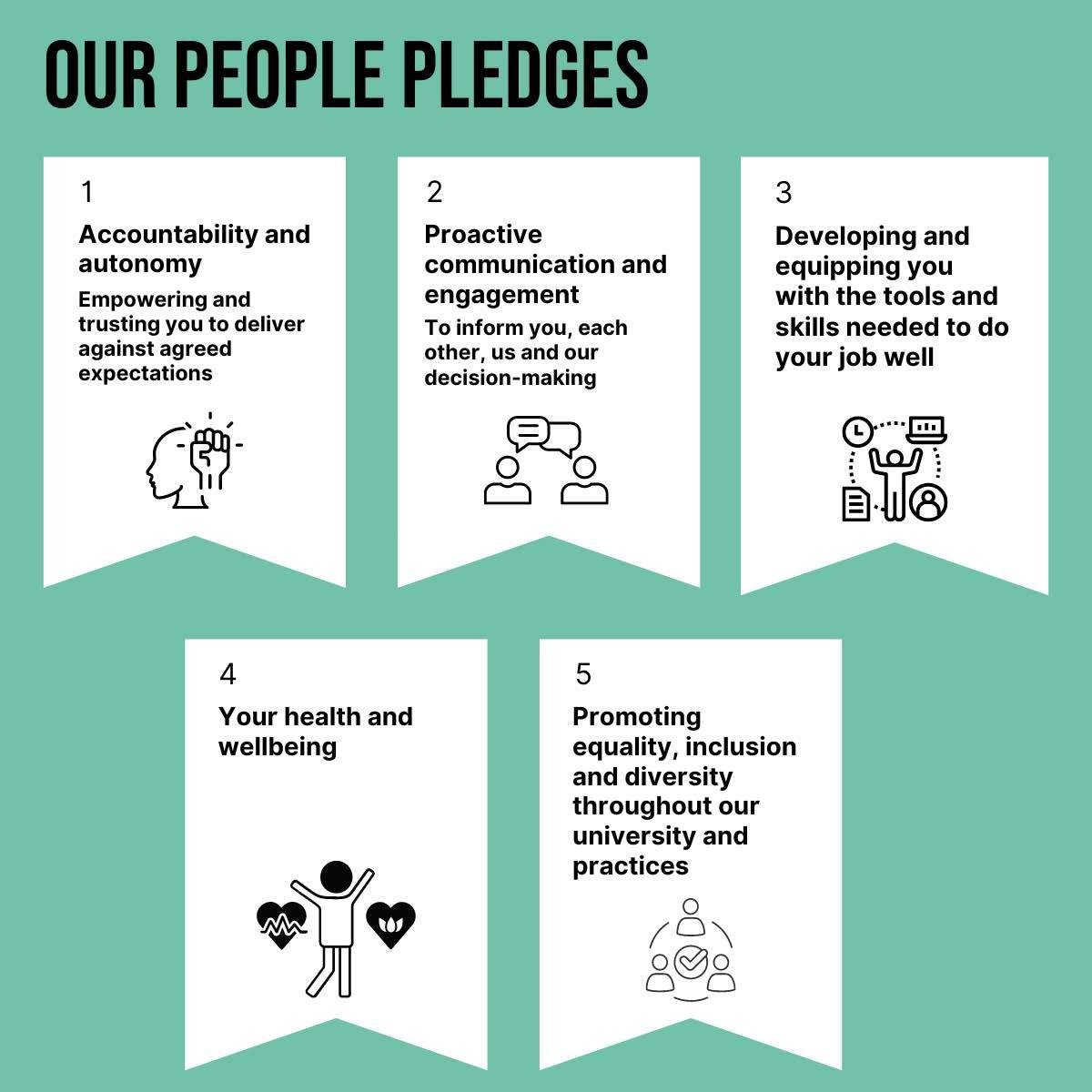
Our values are at the centre of all we do and play an instrumental role in the implementation of this strategy.
More details on our values can be found on page 21 of our Towards 2030 strategy www.cumbria.ac.uk/media/ towards-2030.pdf
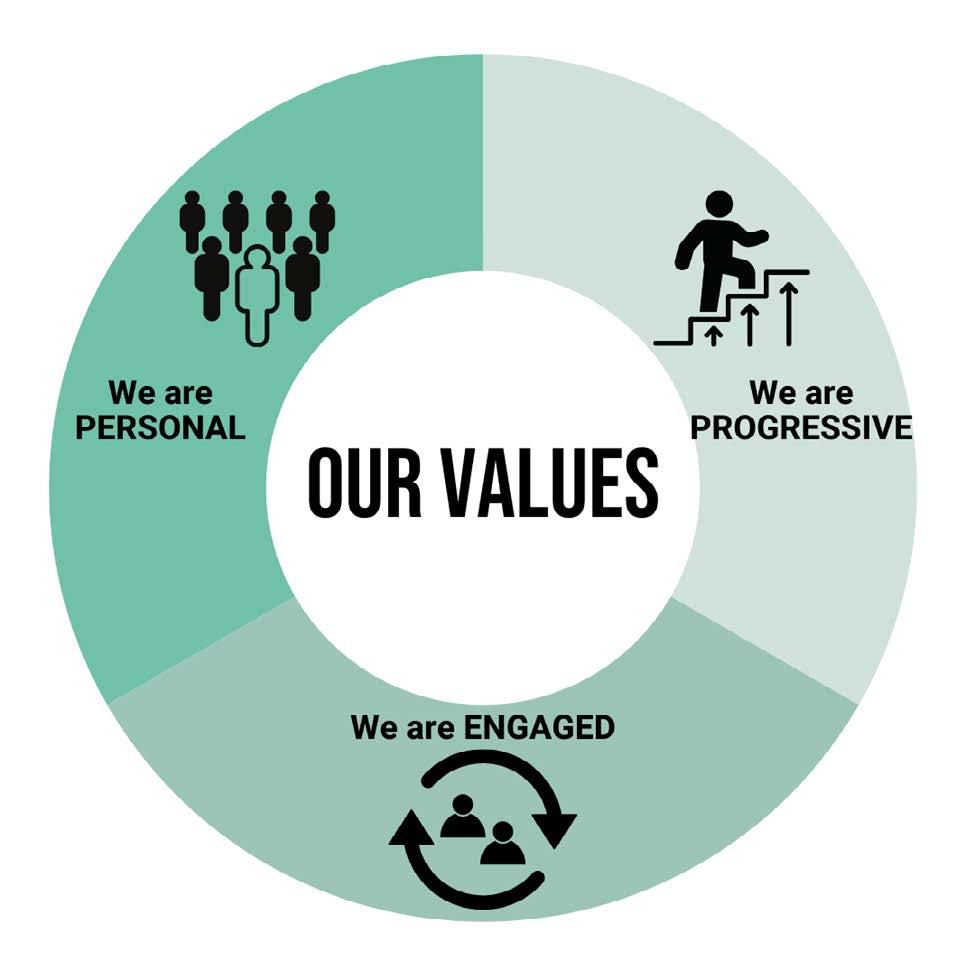
The People and Culture Strategy is key to the people and cultural aspects of T2030. However, it cannot achieve this in isolation and is intrinsically linked with the other underpinning enabling strategies and strategic plans including:
• Digital Strategy
• Institute & Service Plans
• Annual Operating Plan
• Research & Knowledge Exchange Plan
• Estates Strategy
• Sustainability Statement
• Inclusion Statement
We do appreciate that capacity concerns can be a blocker to change. With this in mind, we may seek to trial new initiatives in teams and ask for feedback, to help ensure we land initiatives right the first time with minimal impact on colleagues’ time. Our Digital Strategy has many aims, one is to improve our organisational processes which will support us in creating capacity within teams. This capacity will aid the implementation of initiatives within this People & Culture strategy.
There will be a range of action plans to support the implementation of this strategy. The core measures and indicators are included in part three.
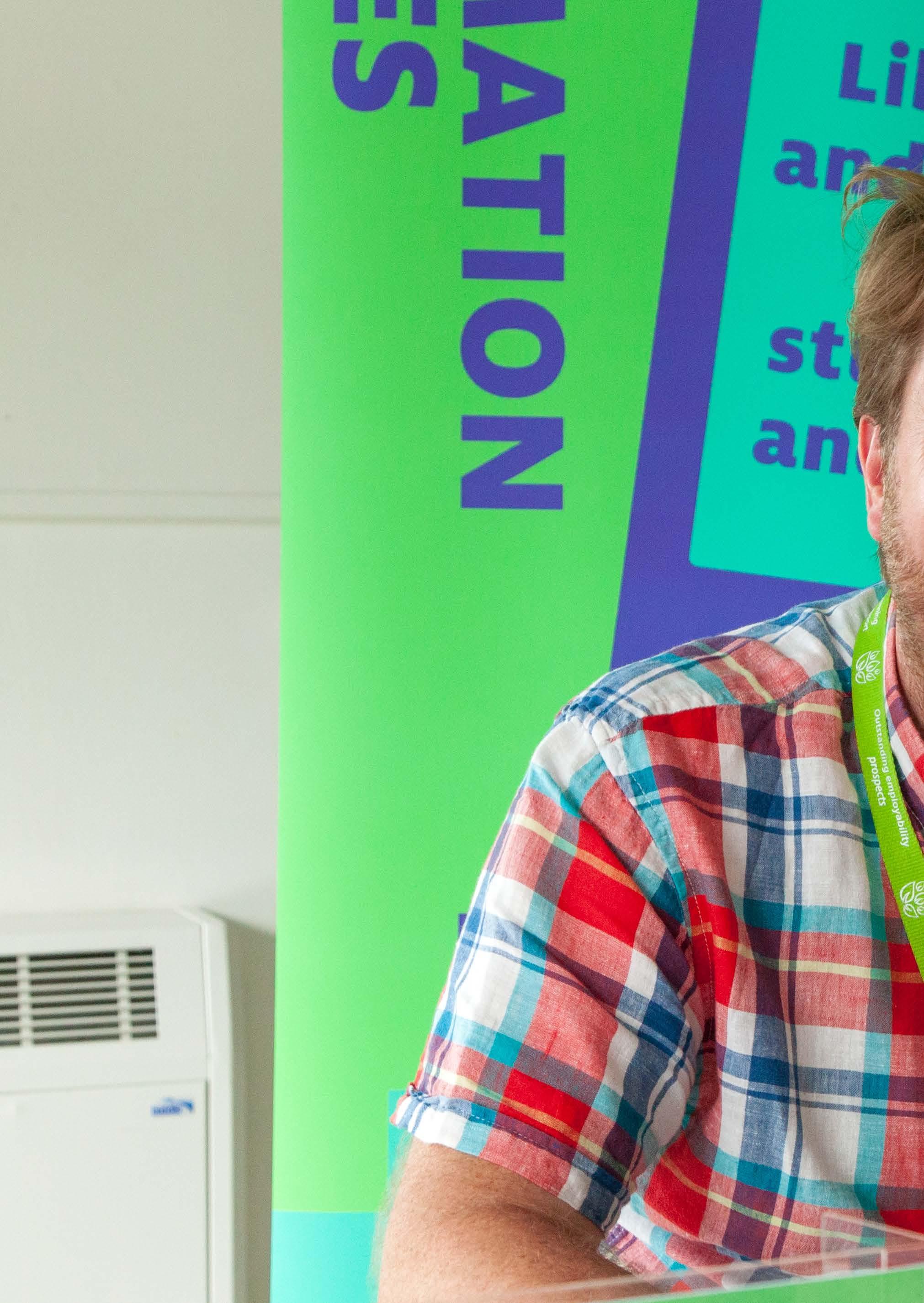
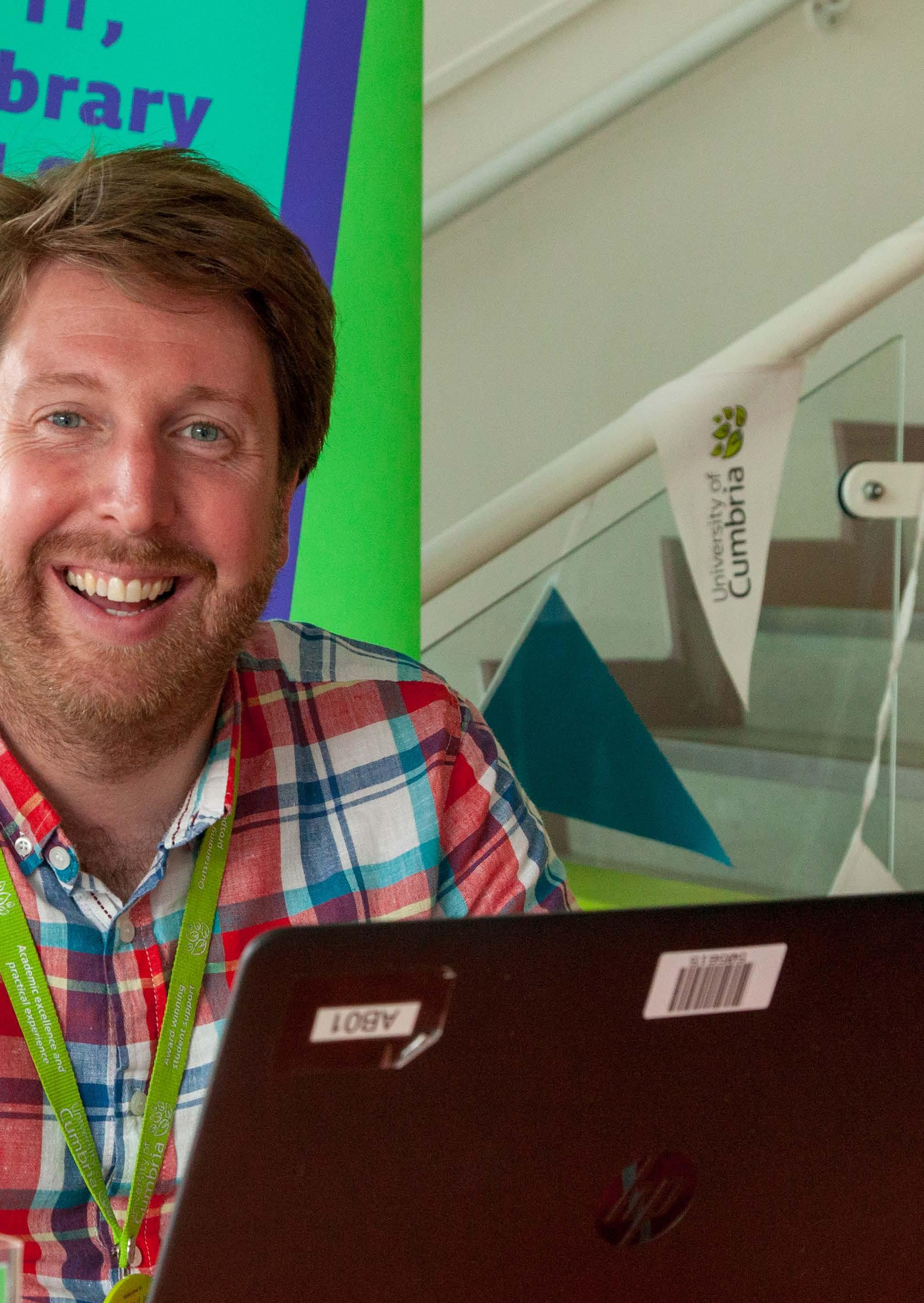
The journey we are on requires us to change and evolve to meet the future needs of students, colleagues, partners, and stakeholders. Colleagues will be invited to be progressive and transformative in the way we each work, to support us to be agile and adaptable.
However, we know there are lots of special features of the university’s inclusive culture that make us who we are today, with our touchstones of traditions. These features need to be protected and nurtured; therefore, we need to be thoughtful and deliberate when evolving our culture and environment to ensure the right balance. Together we will create a greater feeling of safety, support, and kindness.
We invite all our colleagues to be part of our journey to create happier teams, with a welcoming family feel, as we work together to adapt to new ways of working.
Our future culture will be based on the university’s values and promoting what we hold dear, our hospitality and the care we show each other and our students.
In 2024 we will develop a cultural roadmap which is essentially a process to fully understand where we are now and where we want to be.
A focus will also be placed on developing a freedom-to-speak culture where our people feel safe to speak up when things are not as they should be. Alongside this, we will focus on eradicating bullying and harassment in any form. We will be working closely with our trade union partners and staff groups to help us identify any unacceptable behaviours.
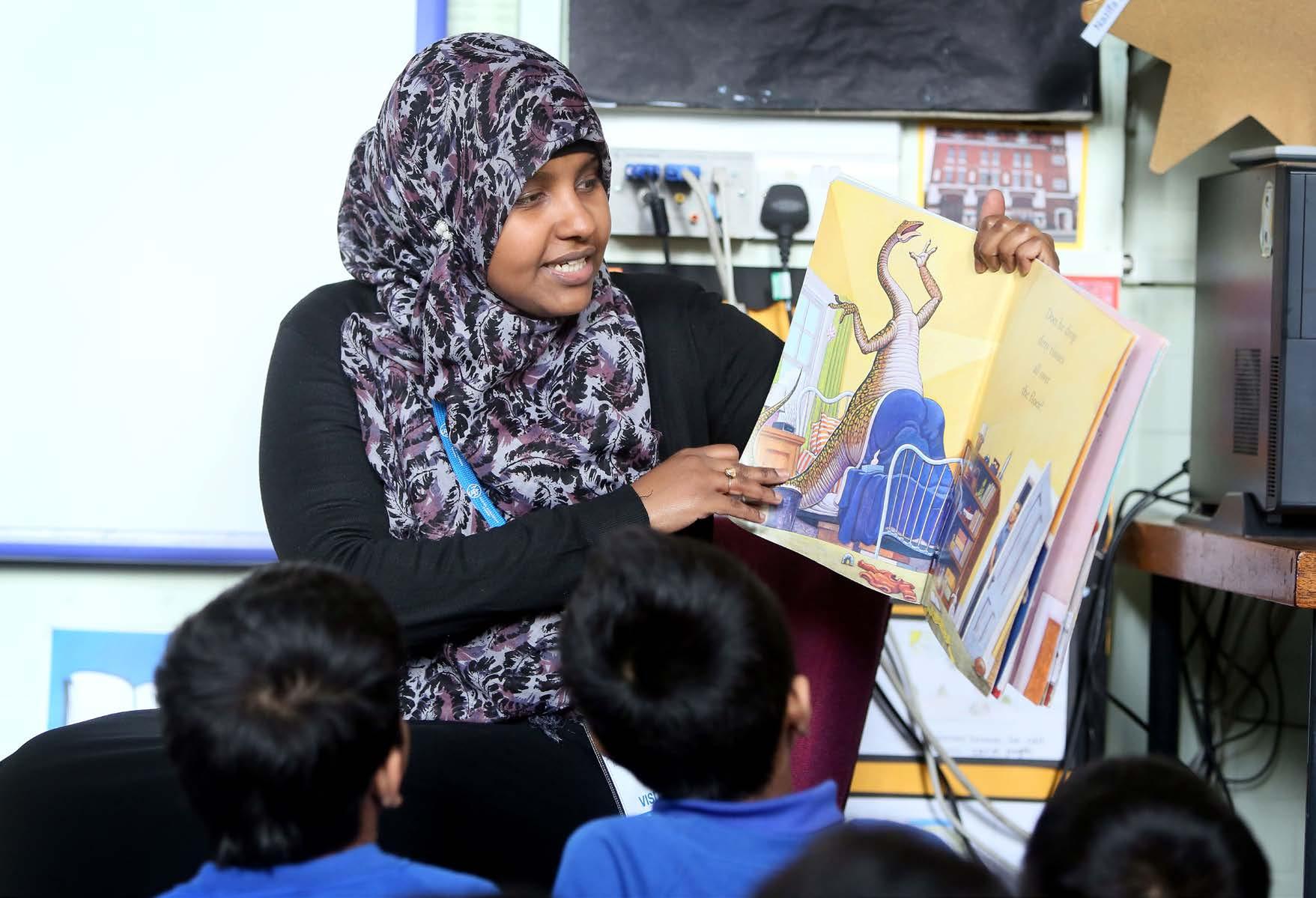
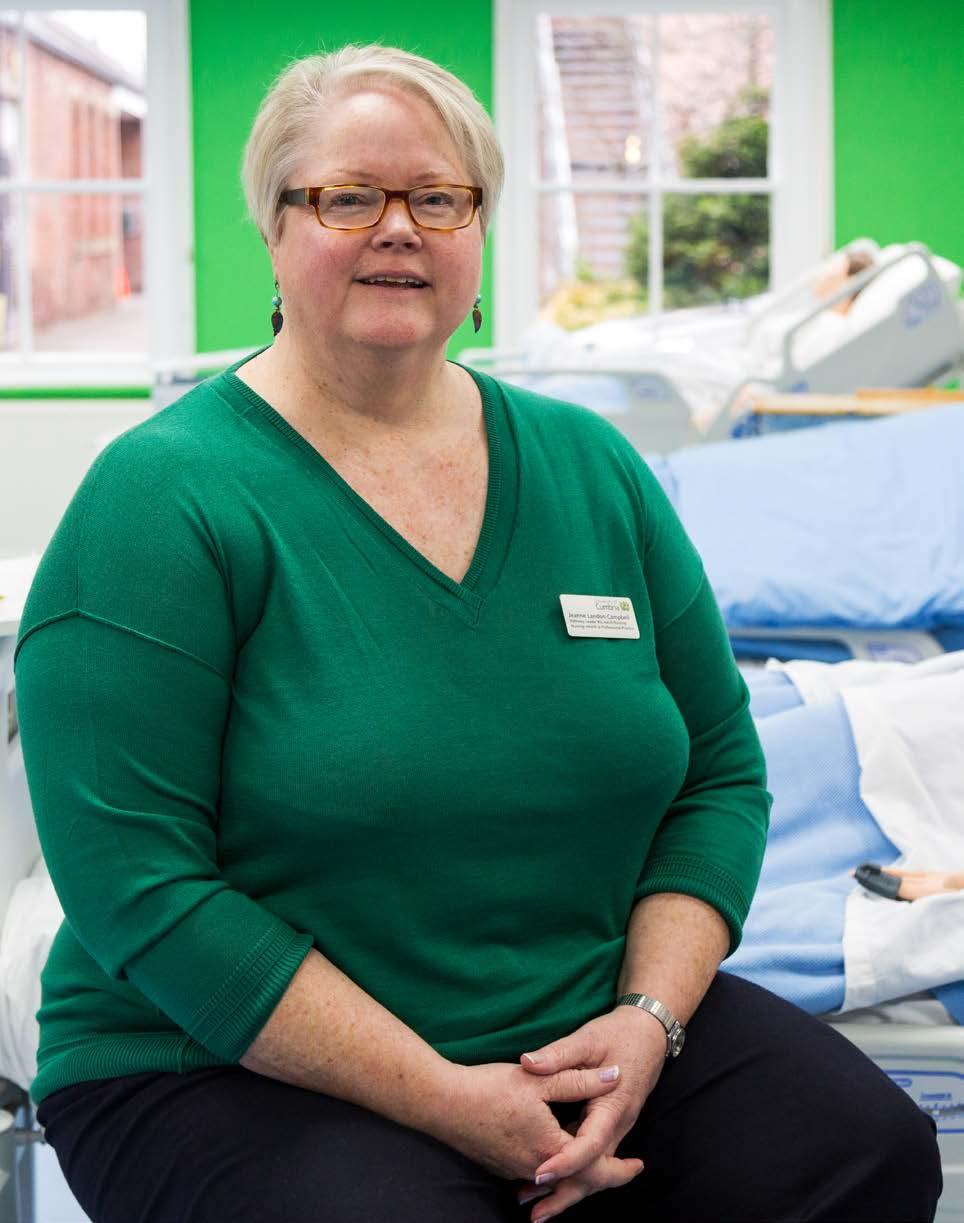
We have deliberately placed a focus on equality, diversity, and inclusion, with health and wellbeing as part of T2030 to ensure that our colleagues are equipped to support their health and wellbeing and operate in a truly inclusive, caring, and equitable way. Existing and future staff networks will play a pivotal role in this theme. We will ensure a fair and inclusive environment for all, with a strong foundation of equality, diversity, and inclusion.
We know that high demands at work can lead to poor mental health. We want to ensure that all colleagues are clear on what is expected of them and that workloads are discussed, as work-life balance is fundamental to our approach to wellbeing and our commitment to rest and recharge.
We are committed to providing an inclusive environment where colleagues feel that their voices and opinions are welcomed and listened to and they are involved in the T2030 journey, no matter what role they play.
We know that some of our colleagues may face additional challenges to their wellbeing due to their background, and/or aspects of their identity. We also appreciate that inequality can in itself have negative effects on mental health and wellbeing. Ensuring we build on our existing welcoming culture, demonstrating continually that we care, will support our culture of inclusion and belonging.
We will be working towards the Mental Health Charter Award Scheme, to acknowledge our work to support the positive mental health and wellbeing of our students and colleagues.
The size, shape, and skills mix of our workforce will evolve as we deliver the T2030 Strategy and as the needs of our partners, students, and stakeholders change. Embracing digital in all aspects of our activity and adapting to make the best use of current and future technologies will also act as a stimulus for change. We need to plan for this and prepare and equip our colleagues with the right skills and confidence to ensure that any changes reap the greatest rewards for all of us.
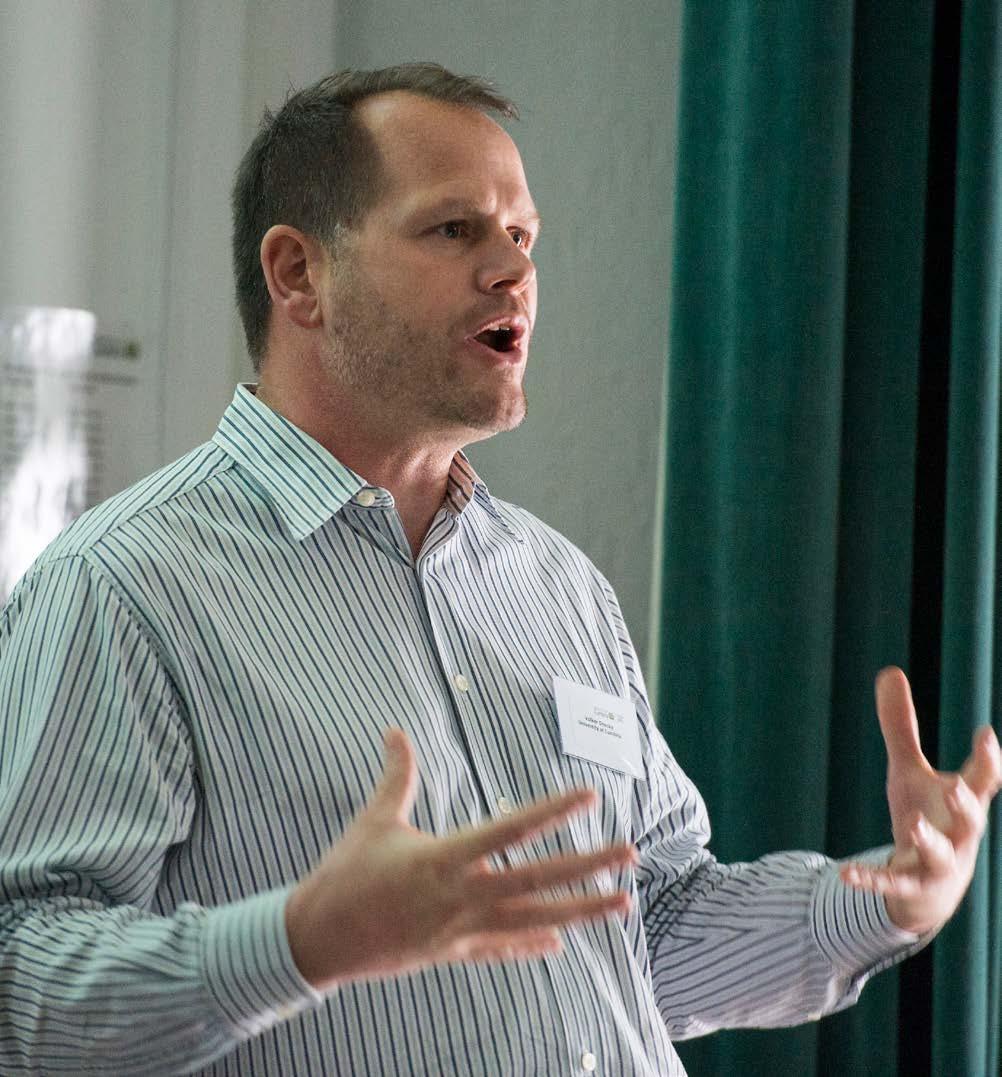
We recognise that our structures, processes, and ways of working also need to be adaptable, simple for us to use and progressive.
As our modes of delivery flex to meet student demands, the university will consider more agile models of employment, so we can seize opportunities to grow the university.
In parallel to this, by the end of 2024/25, an exercise will have been undertaken to define our shared expectations about our individual contributions, and how we each need to work together to create a happy, welcoming, and rewarding experience. This will help us to have beneficial conversations as part of our regular review and career development discussions.
We will create a work environment where colleagues are clear on work priorities and accountabilities, with the skills to be autonomous, utilising their digital know-how to work more efficiently.
We will develop leadership at all levels, ensuring that all colleagues feel included and are supported to realise their potential and understand their contribution to delivering the T2030 strategy, whilst recognising and rewarding positive behaviours.
We will also equip our managers and leaders with skills to support process redesign and implementation of new ways of working whilst maintaining parity and fairness amongst colleagues regarding workloads and opportunities for development and progression.
We will be looking at ways we can support entry into academic roles. For professional services roles, we will be looking to introduce more apprenticeship opportunities and to share our apprenticeship levy funding with local employers.
Attracting, retaining, and developing those with the right skills, outlook, and ideas is critical to the future success of our university. We aim to attract, retain, and reward the best people, both from within the region and beyond by having a great employment offer (including our benefits, culture, development, and training opportunities).
We have a very positive story to tell, and a bright future ahead. From our 2022 Engagement Survey, we know that 80% of colleagues are proud to work for the university (+4% against the HEI benchmark), and 72% would recommend the university as a good place to work (+8% against the HEI benchmark).
Furthermore, as shown in our employment engagement sessions (world cafés), we know our colleagues appreciate our locations, offering a mix of countryside, urban, and capital city environments. We will look to make continuous improvements to the processes we have in place for rewarding and recognising our contributions and supporting development.
With our cultural roadmap development, we will understand fully the features of the university’s culture, employment offer, and ways of working which are attractive to colleagues now and in the future. This means we need to ask colleagues what works and what doesn’t, as well as recognise what potential future colleagues are looking for from a progressive employer. The World café sessions were a great start to this, and we will survey our colleagues throughout the life of this strategy and external insight (i.e., Ofsted survey, UCEA benchmark surveys) to support our development.
As part of our journey of change, we will be defining, agreeing, and embedding new ways of working and ensuring the correct balance is struck between campus vibrancy, work-life balance, and efficiency. This will be further enhanced by our increased expertise in designing and delivering digital education and learning.
As a community-based university and a member of the Cathedrlas Group of Universities, we exist for our communities to help a greater variety of people and places to thrive. We encourage our colleagues to engage with our local communities and become involved in volunteering and local activities. By 2025 we will have a colleague volunteering scheme in place whereby colleagues can be supported in these endeavours.
We will support colleagues to build upon the successful collaboration model across our partnerships whilst enhancing and promoting cross-team collaboration to share best practices and knowledge exchange for the benefit of our colleagues, students, and our communities.
We do appreciate that often colleagues feel they can’t participate in events, such as existing volunteering schemes and well-being events due to capacity constraints, so our efforts to increase our digital skills with new ways of working will help to create time and space for this.
Our future success is predicated on the need for us to continually change and adapt and in doing so we will be at the forefront of higher education, ensuring that our students will be equipped with the skills, confidence, and attributes that the rapidly changing world requires. This requires us to ensure that we effectively manage change, and embrace what we can learn from failure, without seeking to apportion any blame. To manage change well, we need to support our colleagues to prepare them for change and communicate, to create a mindset where change isn’t feared.
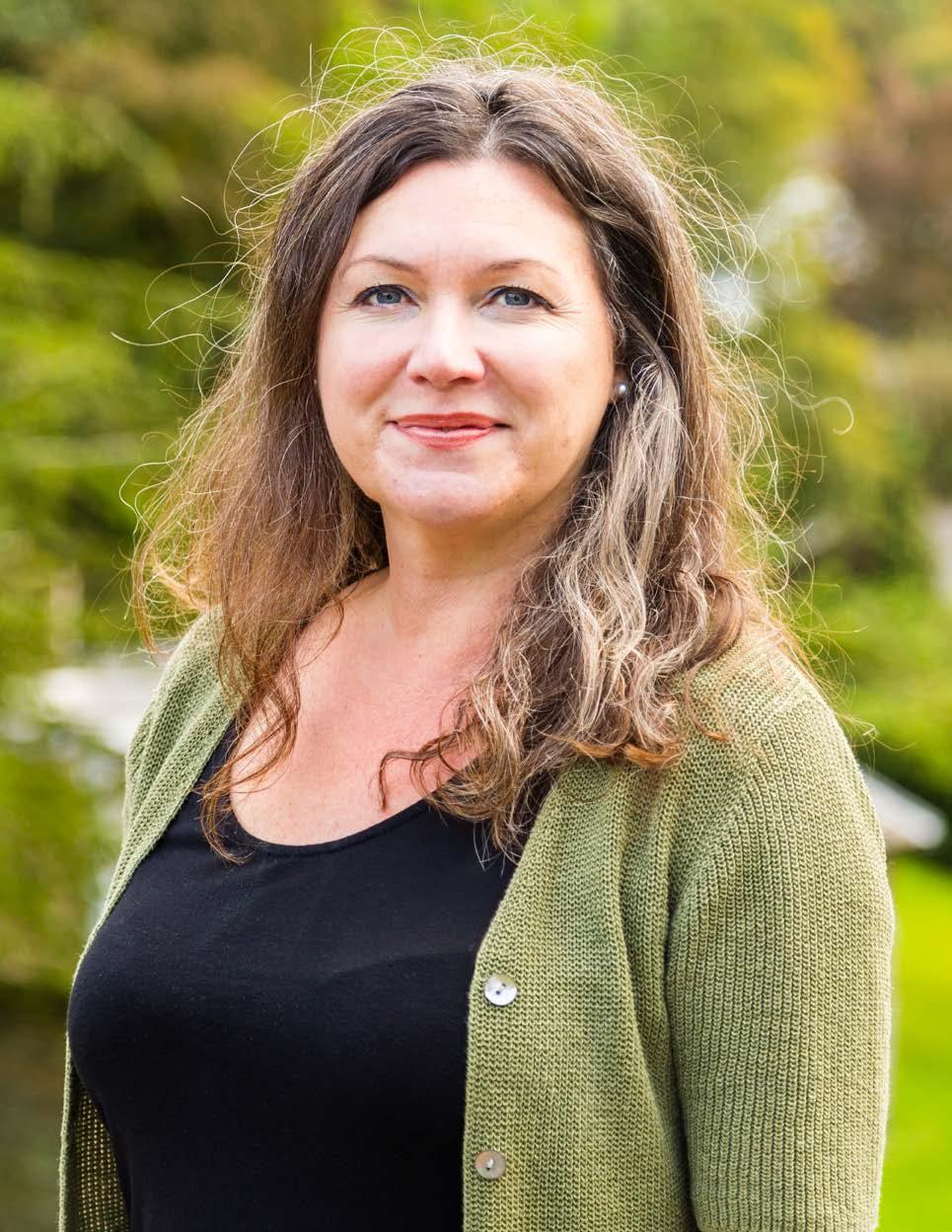
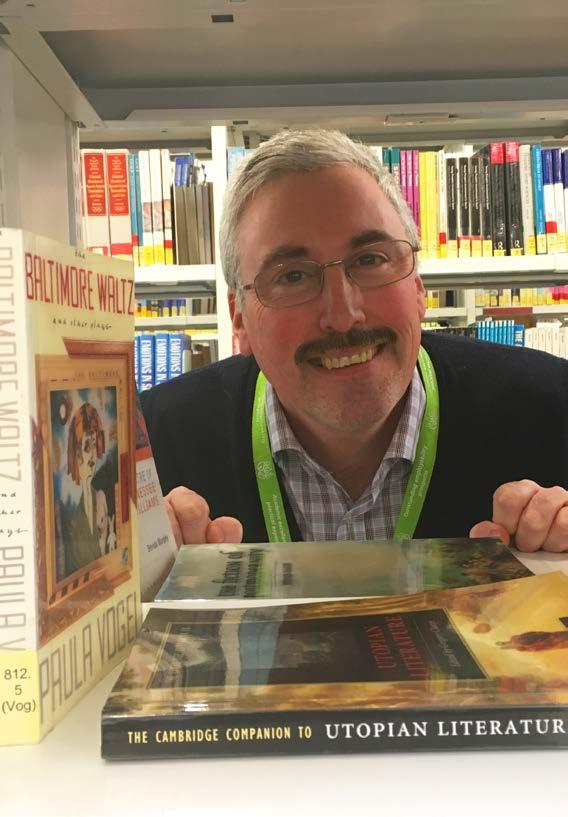
- Our commitment to our equality impact assessment process ensures that all change initiatives are assessed to provide assurances that they are fair and inclusive.
- We believe that increasing trust and autonomy at work will lead to more fulfilling work, thus a greater sense of contribution and happiness within the university. Accountability and Autonomy is our first people pledge. We will share our successes where we have successfully reduced administrative burdens and increased autonomy in teams.
- Our new HR System which will be introduced in 2024 will provide more employee self-service and we will be able to introduce more automated workflows to increase the speed of decision making. We aim to streamline and integrate our training platforms to make life easier for everyone including a review of our mandatory training provisions and renewal periods.
- We invite all our colleagues to join us to align our contributions to deliver an even better colleague and student experience. Together, we will work smarter not harder by leveraging technology and ensuring decisions are made at the appropriate level, removing barriers, and understanding the types of roles and skills we need to deliver our T2030 Strategy.
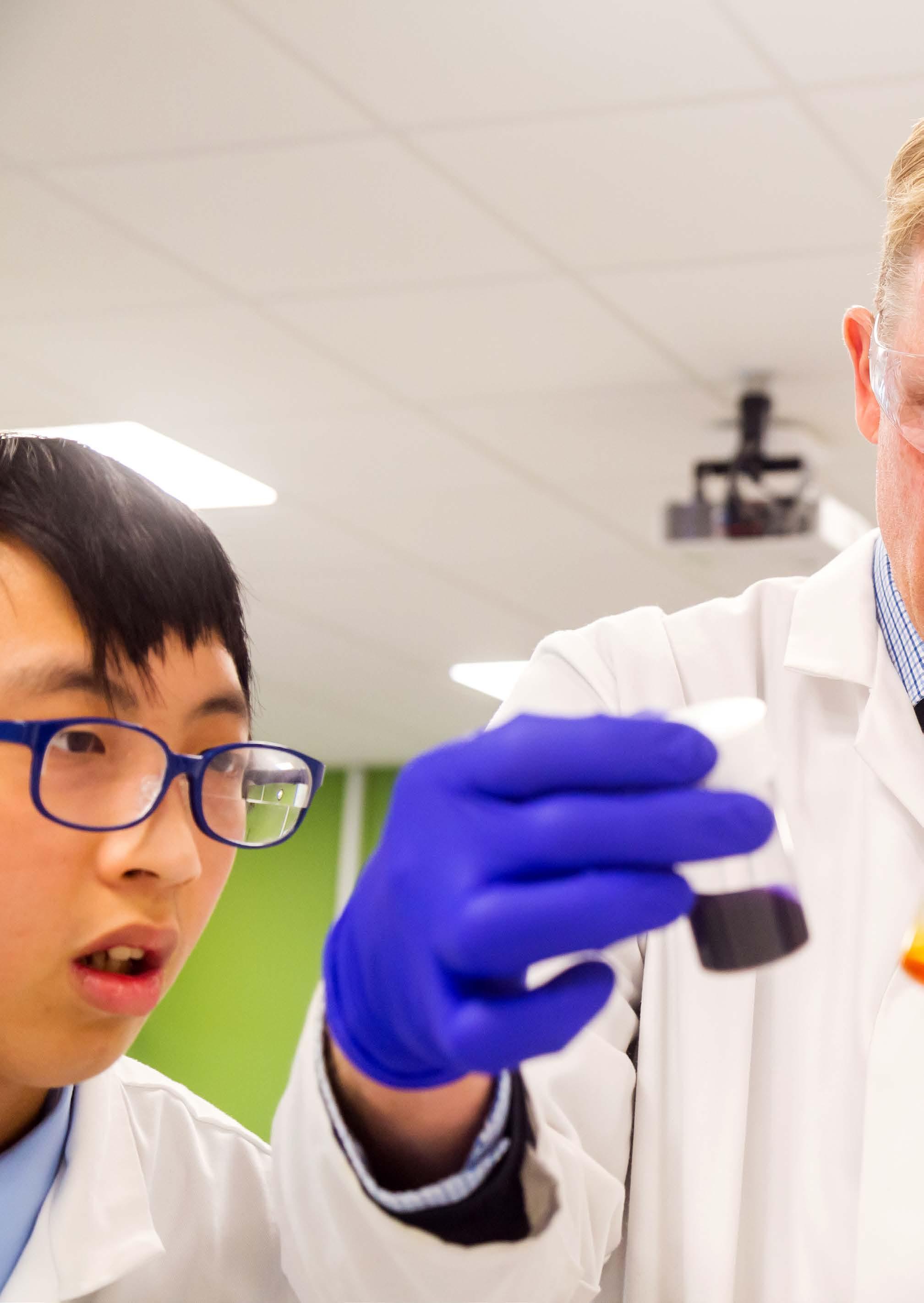
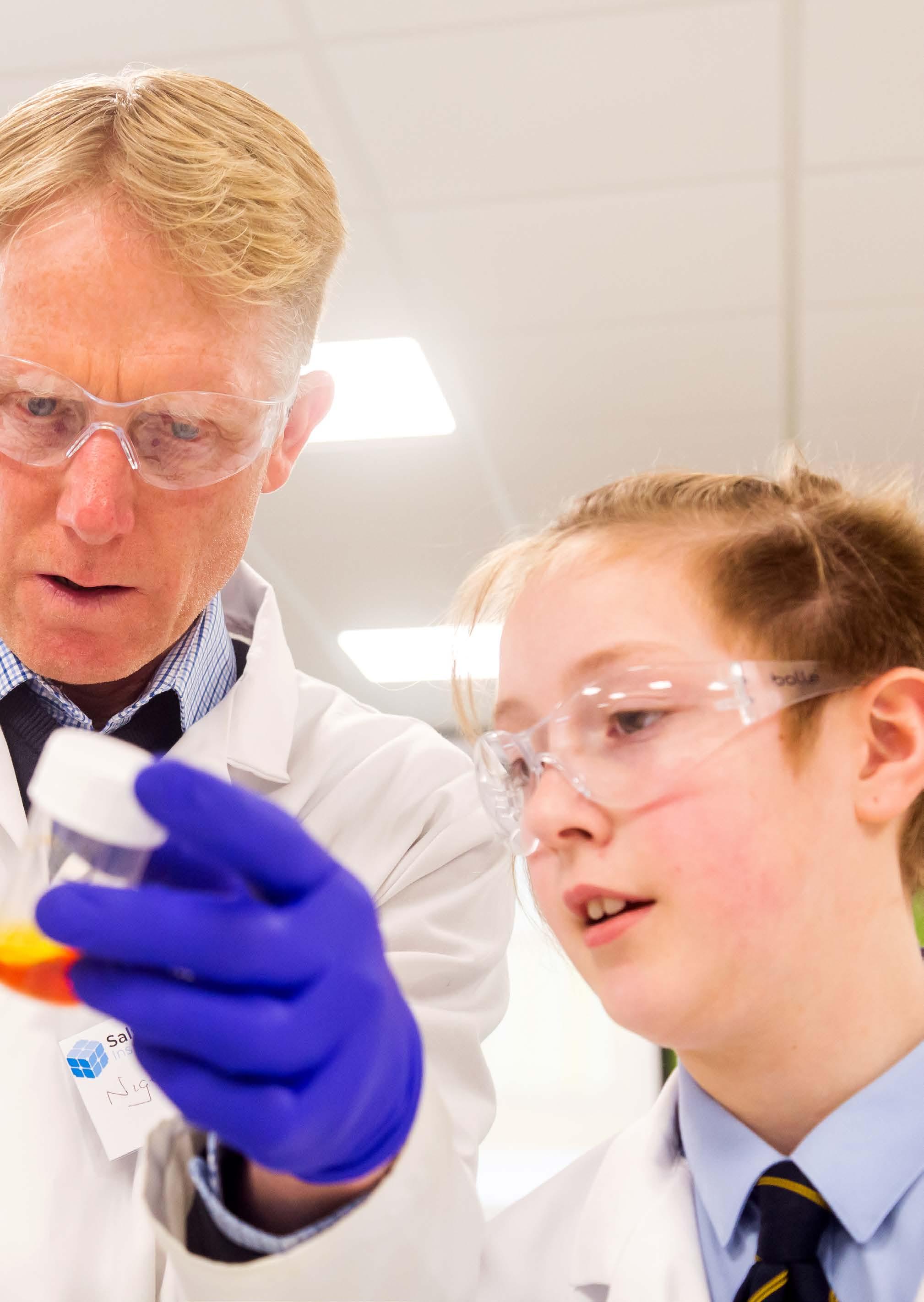
Employee Engagement Results – I am clear about how my work contributes to the success of the university
&
Employee Engagement Results - My manager gives me regular feedback on how I am doing.
& Autonomy
& Autonomy
& Engagement
Employee Engagement Results – I would recommend the university as a good place to work
Employee Engagement Results – I am kept well informed about what’s happening in the wider university
Employee Engagement Results – I know how to look after and access support to manage my own wellbeing
Employee Engagement Results - I believe the university is committed to equality of opportunity for all its staff
The People & Culture strategy, as a key enabling strategy, will be monitored regularly by VCE, the University Board, PPCC and the JNCC.
Employee Engagement Results – I am clear about how my work contributes to the success of the university
Employee Engagement Results - My manager gives me regular feedback on how I am doing.
Employee Engagement Results – I would recommend the university as a good place to work
Employee Engagement Results – I am kept well informed about what’s happening in the wider university
Employee Engagement Results – I know how to look after and access support to manage my own wellbeing
Employee Engagement Results - I believe the university is committed to equality of opportunity for all its staff

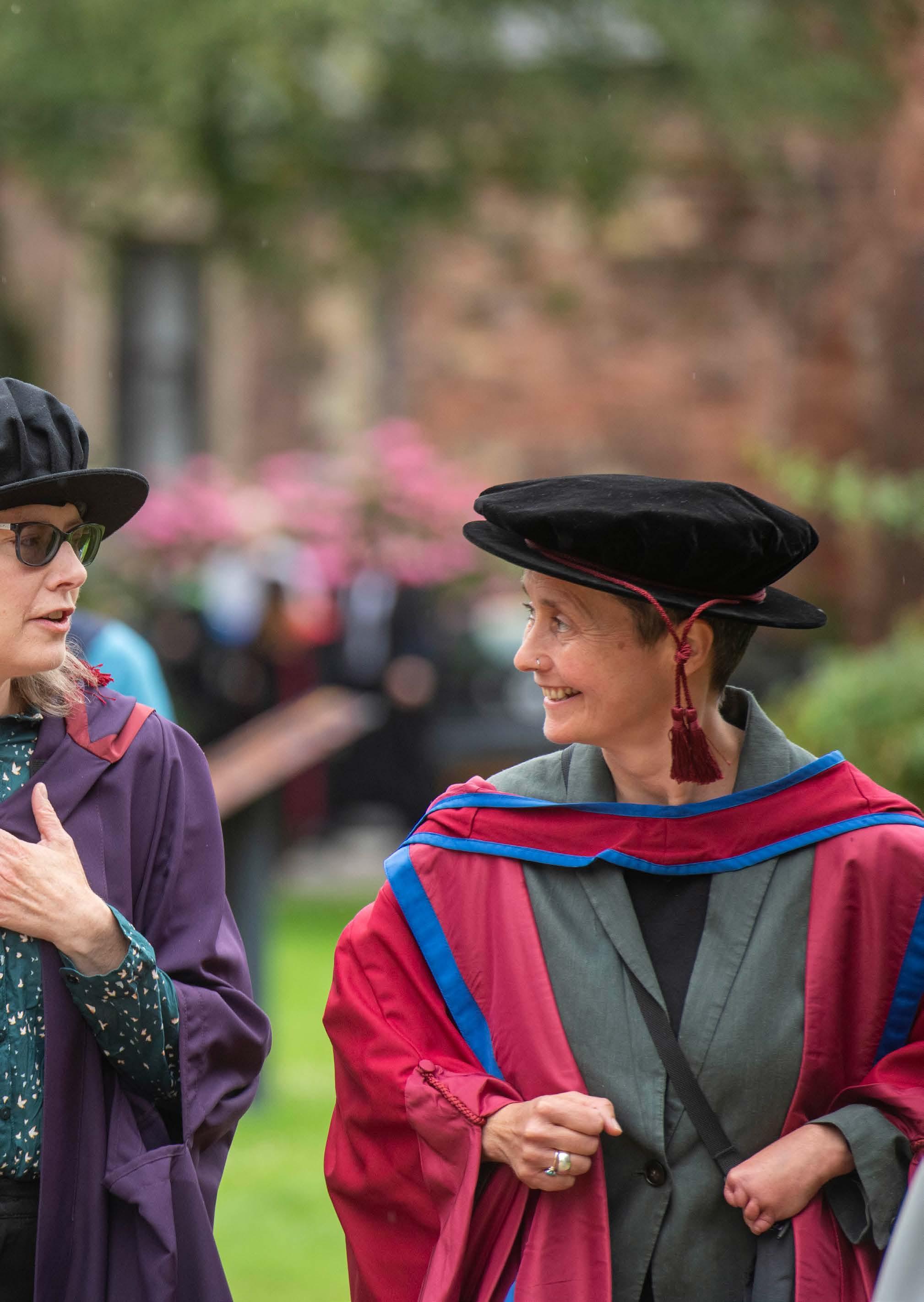
(Strategic Plans only where not covered by institute or service plans)
Cultural Roadmap including employee engagement survey
Scoping/ Action Plan for Mental Health Charter
a Freedom to Speak Culture